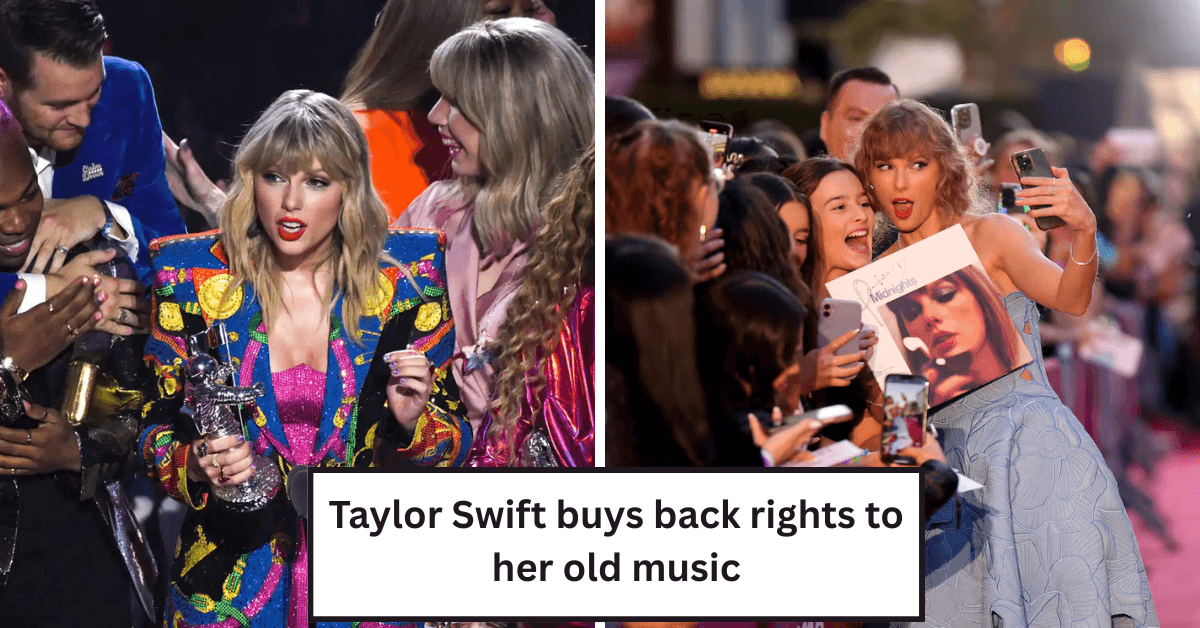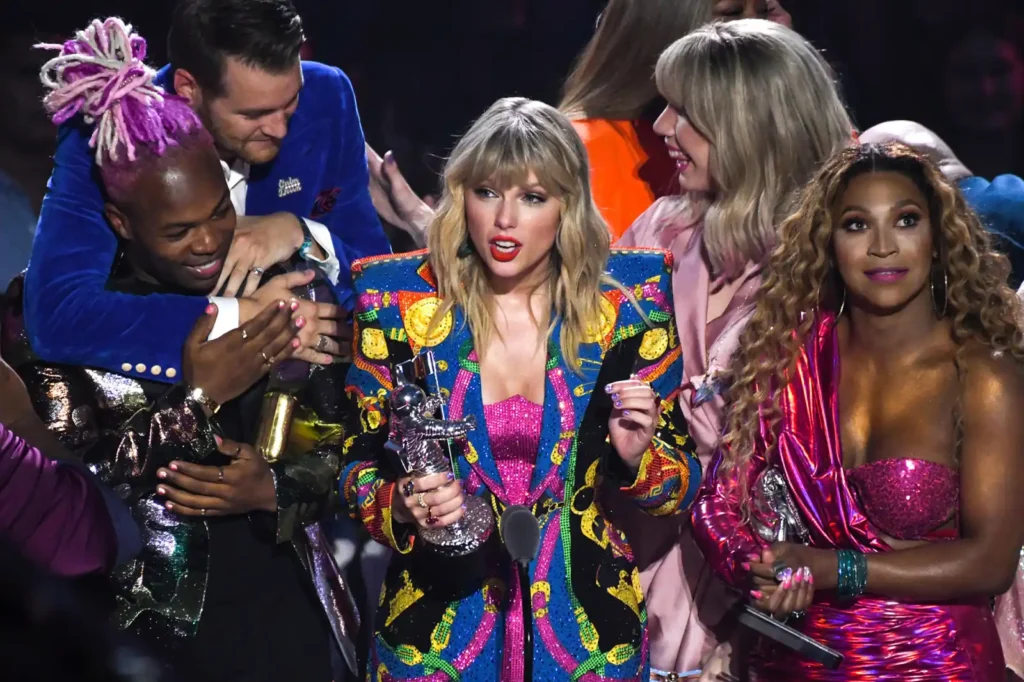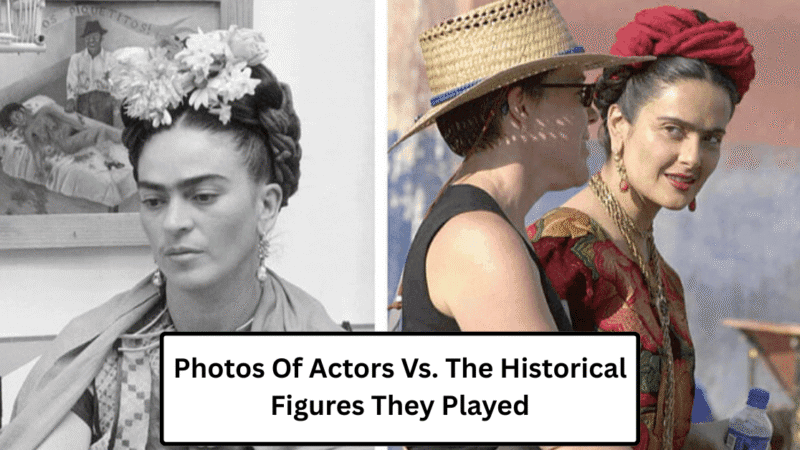Taylor Swift buys back rights to her old music

Taylor Swift has taken a bold step in her music career by buying back the rights to her old songs. This move comes after years of public struggle over ownership of her master recordings. Her decision marks a turning point in the music industry, highlighting the importance of artistic control.
Swift’s journey has inspired both fans and fellow artists to stand up for their creative rights. With this victory, she not only reclaims her past work but also redefines her legacy. The move showcases her strength as both a musician and a businesswoman. It’s a story of resilience, empowerment, and the fight to own your voice.
A Victory Years in the Making

Taylor Swift has finally reclaimed ownership of her old music catalog. After a highly publicized battle, she has bought back the rights. This move marks a major personal and professional victory. Fans have followed her journey since the dispute began in 2019. Swift never gave up on regaining control over her art. Her perseverance has inspired many young artists worldwide. It’s a moment of pride for her and her loyal fan base—one that fans were still discussing while celebrating her recent taylor swift chiefs game appearance.
The Battle for Her Masters

The dispute began when her original masters were sold without her consent. Swift took issue with the music industry’s lack of transparency. Swift expressed disapproval of the music industry’s lack of transparency. Her masters were purchased by a company she opposed. She voiced her frustration openly, risking industry backlash. Many fans supported her through social media campaigns. It wasn’t just about music—it was about artistic freedom. Buying back her rights proves that persistence pays off.
Fans Celebrate the Big News

Online, Swift’s followers, dubbed “Swifties,” were ecstatic. Social media was filled with messages of support and celebration. Many recalled her past statements about artistic ownership. They feel proud to see her standing up for musicians’ rights. Fans believe this moment will go down in pop culture history. They eagerly anticipate what she’ll do with her regained music, especially after her memorable stops like taylor swift new orleans. The victory feels personal to many long-time followers.
A Message to Young Artists

Aspiring musicians can learn a lot from Taylor’s tale. It highlights the importance of understanding music contracts. She encourages young creatives to value their work. Owning your art gives you power and protection for the long run. Her experience shows that fame doesn’t equal full control. Aspiring musicians can learn from her battle and resilience. Swift is now seen in the industry as a symbol of empowerment.
Impact on the Music Industry

Taylor’s move could shift how artists approach their careers. Labels may face pressure to offer fairer contract terms. The ability to self-produce may feel more liberating to independent artists. Other stars may follow her lead in regaining ownership. It sparks deeper conversations about artist rights and profits. Streaming platforms may also need to rethink royalty models. This event could lead to more industry-wide reform—something fans will remember alongside viral images like taylor swift bikini shots making rounds online.
Looking Ahead What’s Next for Taylor?

Taylor has countless creative alternatives now that her catalog is back. She might release exclusive performances or behind-the-scenes versions. Collaborations using her original tracks could be on the horizon. Fans hope for a celebratory concert or special album re-release. She’s also expected to continue advocating for artist rights. Her legacy as a businesswoman now matches her musical success. The future is brighter than ever for Taylor Swift, and with stubhub taylor swift ticket demand soaring, it’s clear her influence shows no signs of slowing down.
The Power of Re-Recording

Taylor started re-recording her records prior to reclaiming her masters. These “Taylor’s Versions” gave fans an alternative to the originals. She added bonus tracks and fresh vocals to each re-release. The strategy not only reclaimed control but also gained massive success. Each version outperformed the original on streaming platforms. It was an emotional reclamation as much as an economic one. Her relationship with her fans was further cemented by the re-recordings.
The Legal Side of Ownership

Swift’s journey involved complex negotiations and legal processes. Music rights are often tied up in lengthy contracts. She had to navigate clauses and ownership loopholes carefully. Lawyers and advisors helped her make the right decisions. It shows how important legal literacy is in entertainment. Understanding contracts can protect artists from future disputes. Swift’s case is now studied as a legal milestone.
Reclaiming Her Narrative

For years, others controlled how her music was presented. Now, Taylor decides what gets promoted and when. She controls her discography’s legacy and public image. That freedom helps protect her from media manipulation. She’s no longer just reacting—she’s leading the narrative. It’s a shift from vulnerability to true empowerment. Her voice now carries more meaning, both lyrically and legally.
Media Coverage and Public Response

News outlets covered every update in her ownership journey. Interviews, opinion pieces, and documentaries explored the conflict. Swift remained transparent and strategic in her communication. Her openness won public sympathy and support. Even critics respected her resilience and clarity. The media frenzy helped raise awareness for artist rights. It turned a personal battle into a public cause.
Inspiration Beyond Music

Taylor’s fight inspired people beyond the entertainment world. Writers, artists, and entrepreneurs saw reflections of their struggles. She showed the value of standing up for one’s creations. Her acts provoked discussions in academic institutions and media outlets. People used her story to discuss ownership and independence. Swift became a role model for creative autonomy. These days, her impact goes well beyond the stage.
Celebrating Female Empowerment

Taylor’s win is a celebration of women’s power in music. It dispels the misconception that the economic world is a “man’s world.” She’s among the few female artists to reclaim her masters. Her courage inspires women to lead boldly and negotiate smartly. It’s a moment of pride for female creatives everywhere. She’s not just telling stories—she’s changing systems. Swift’s success empowers a generation of women to own more.





